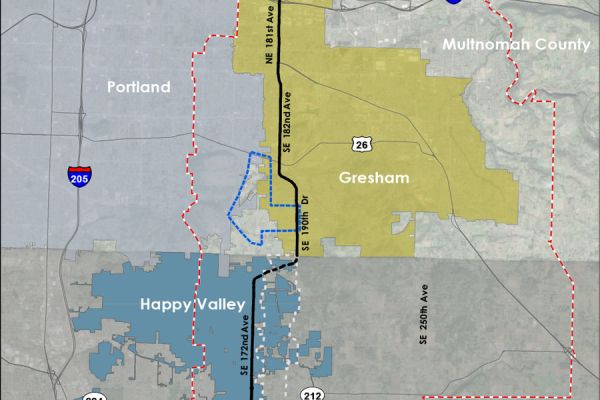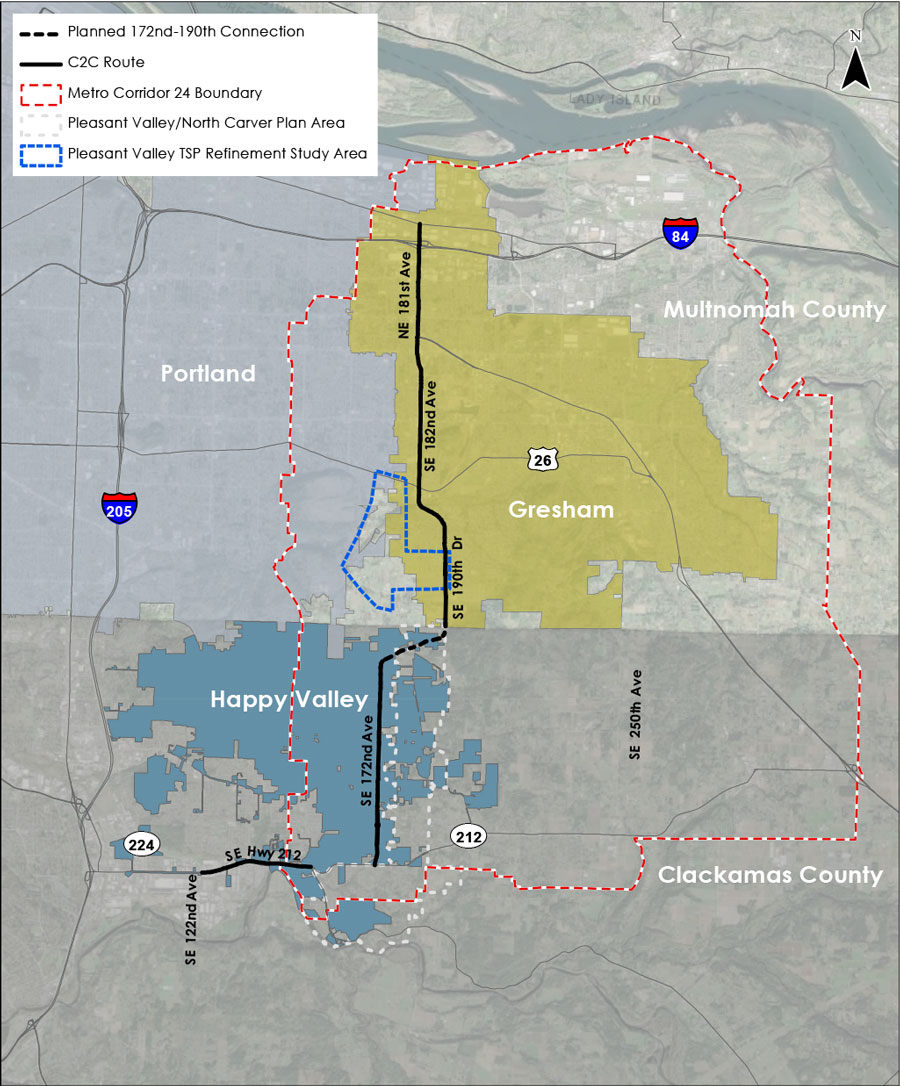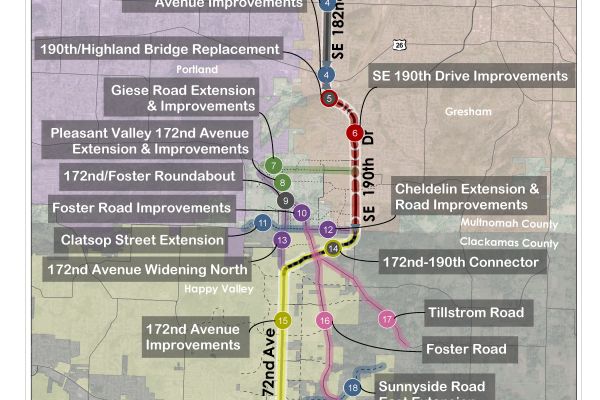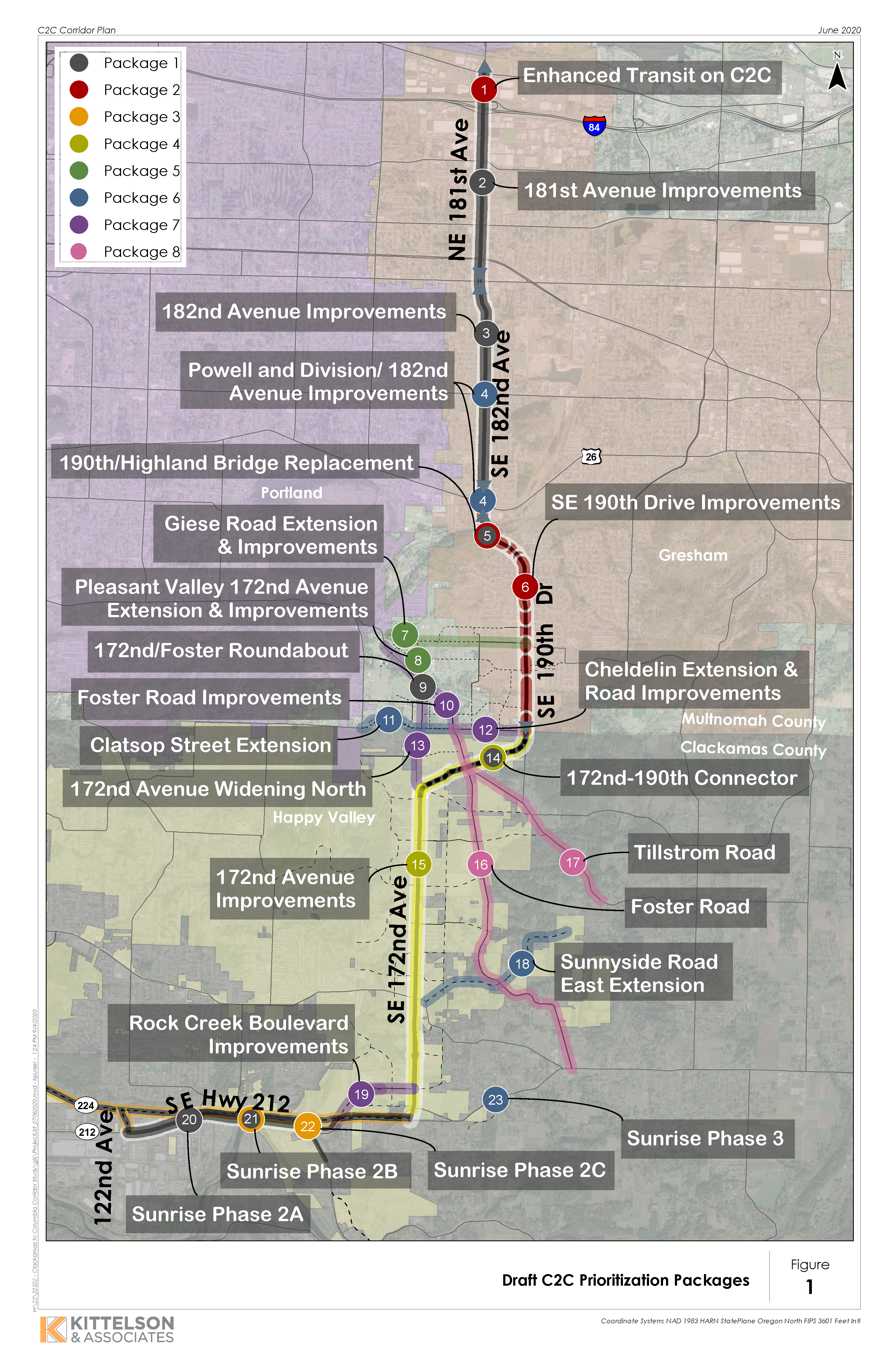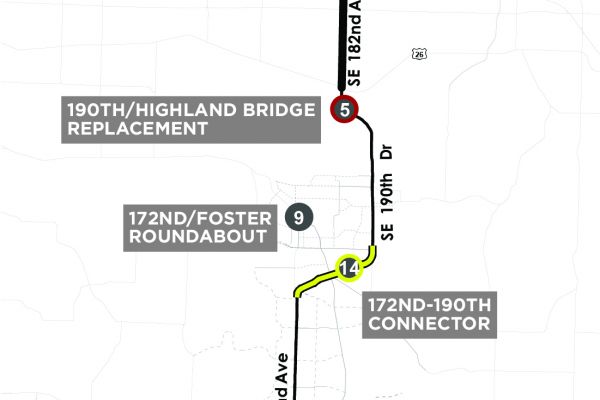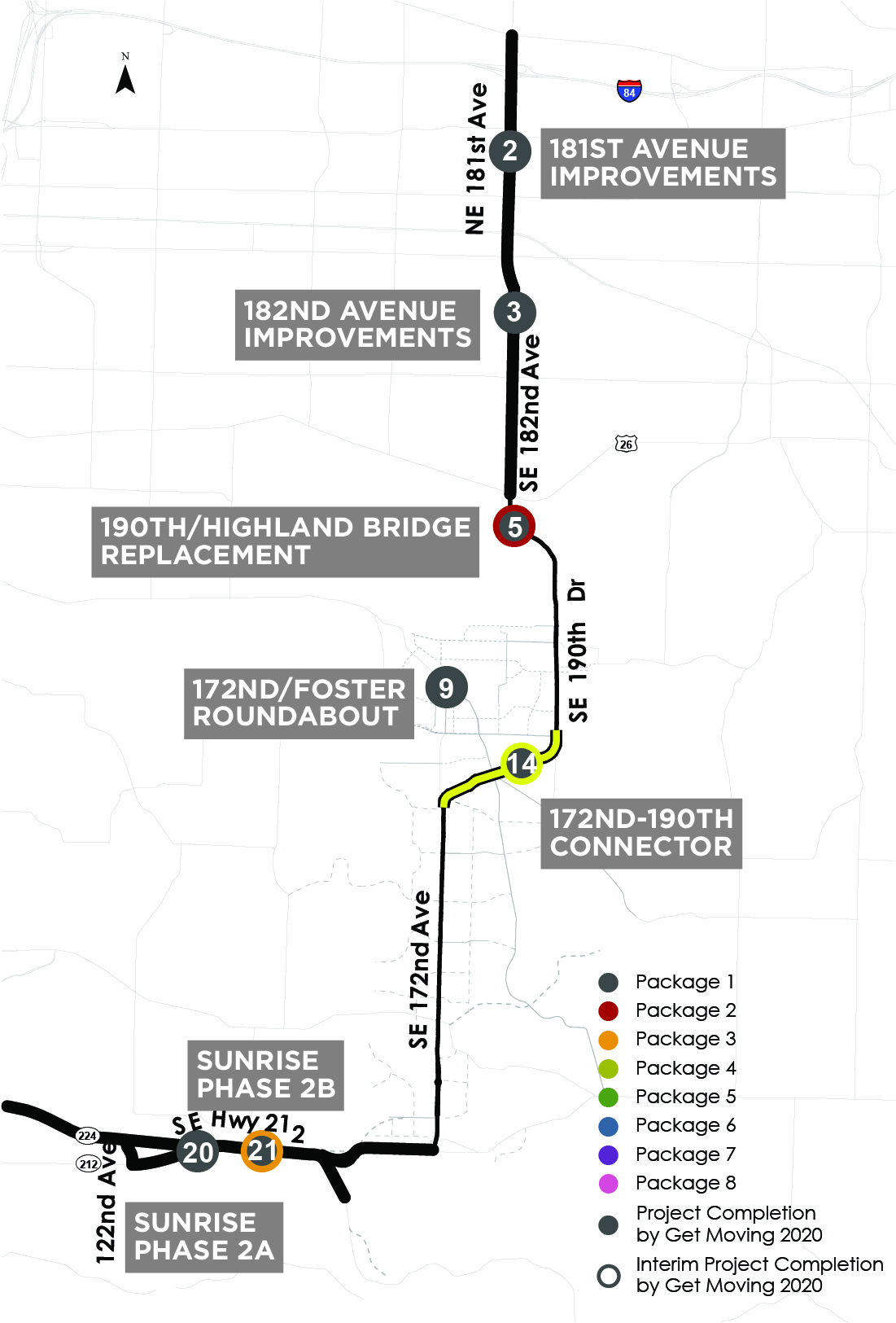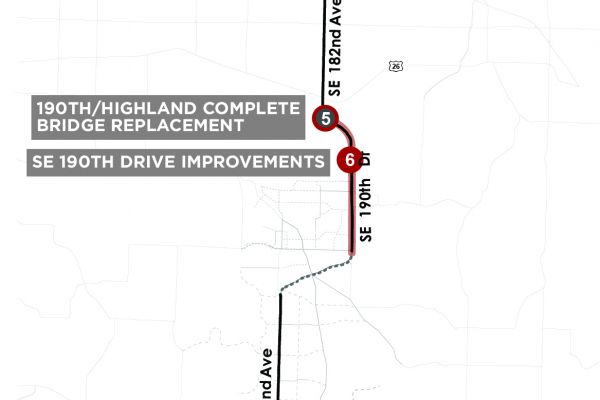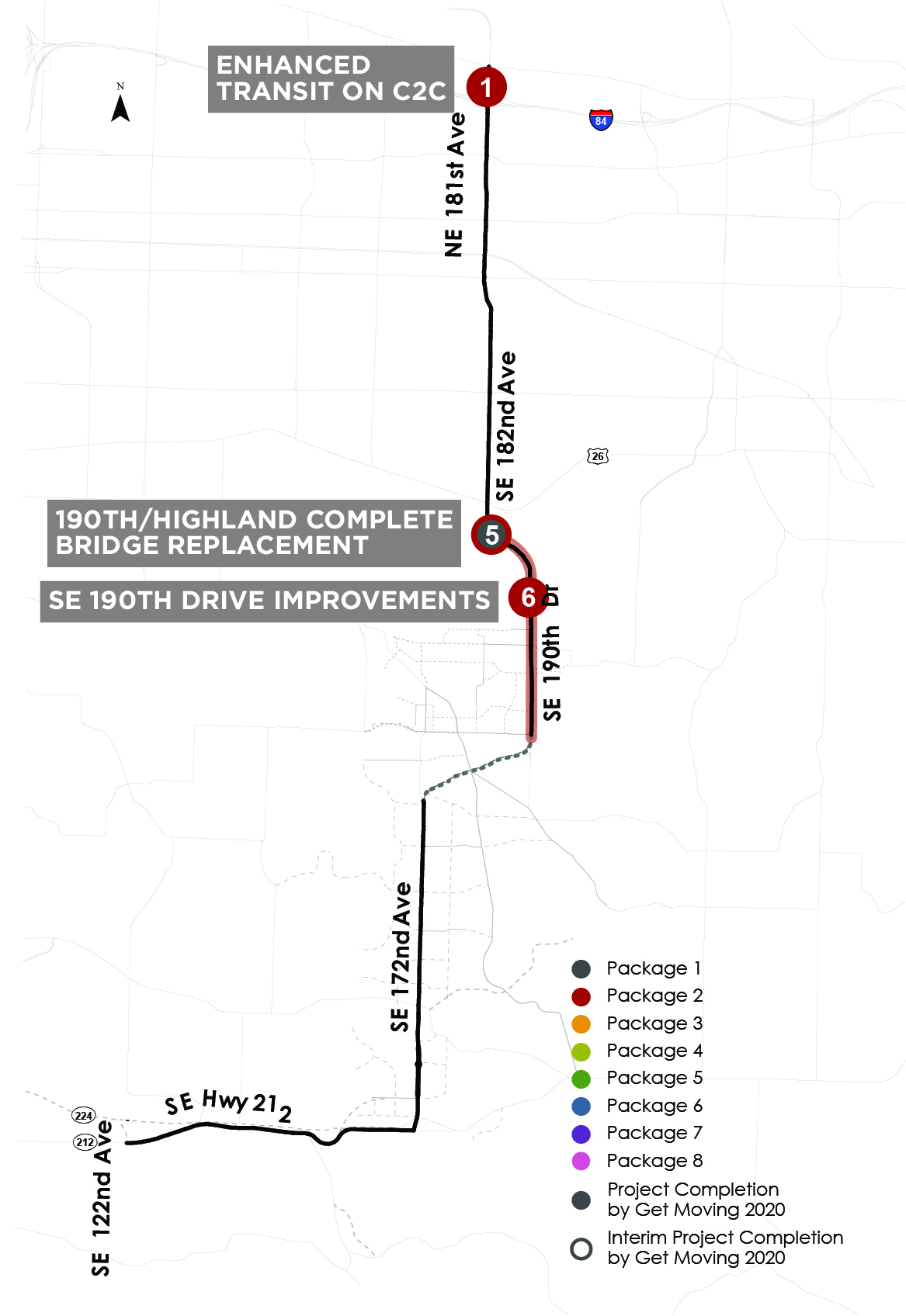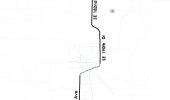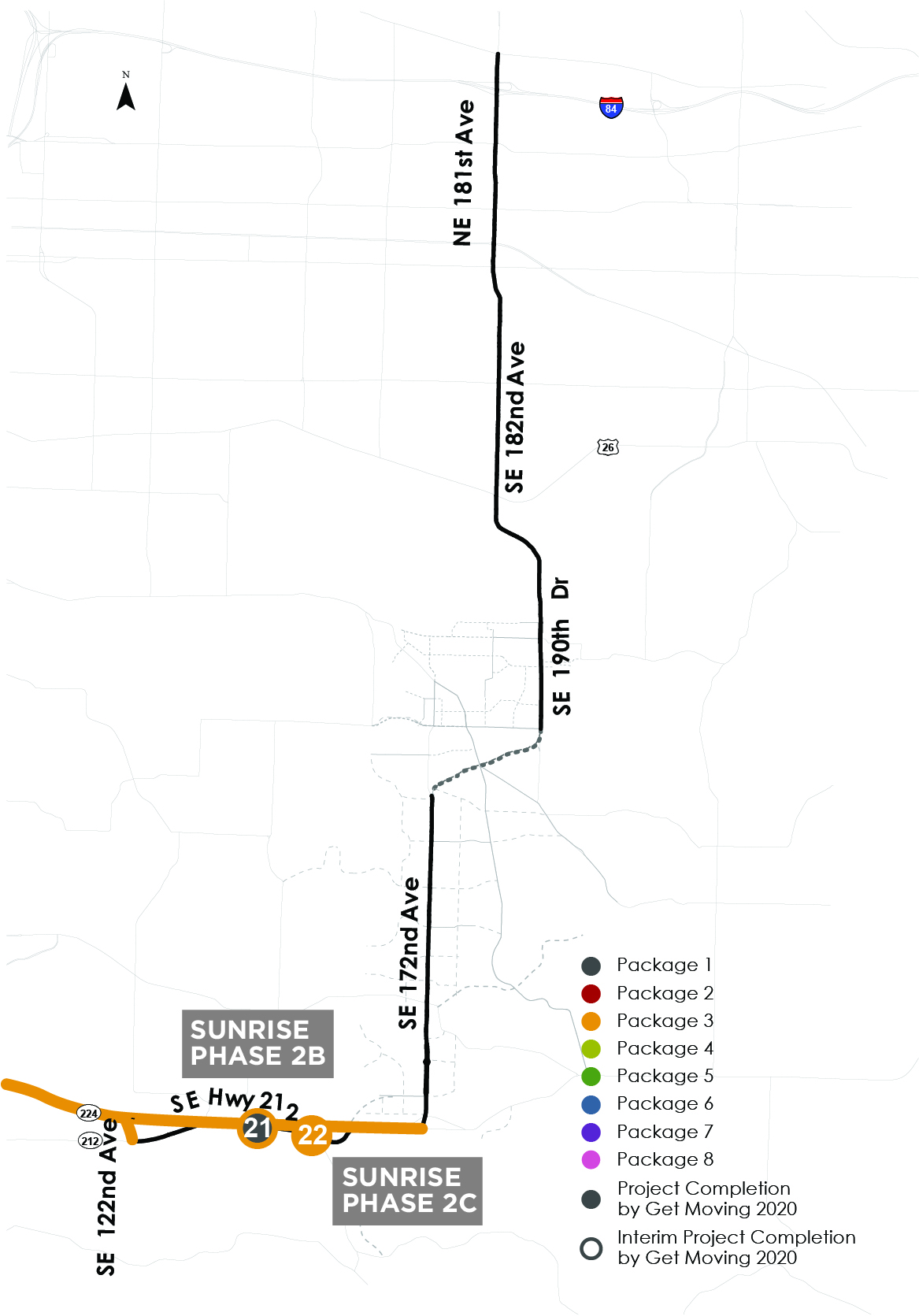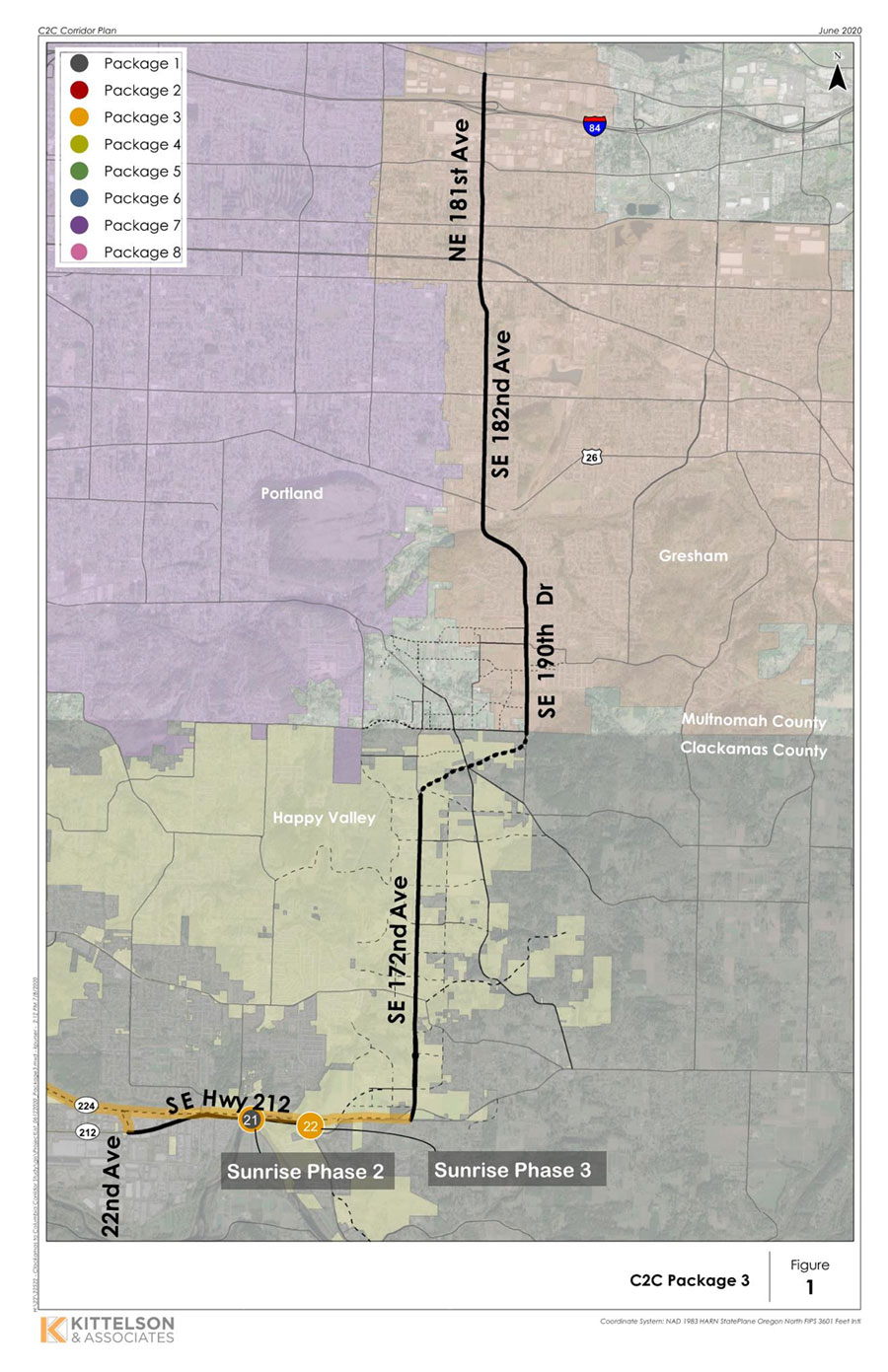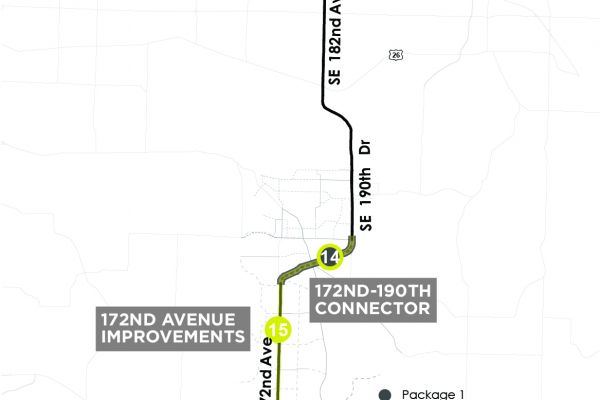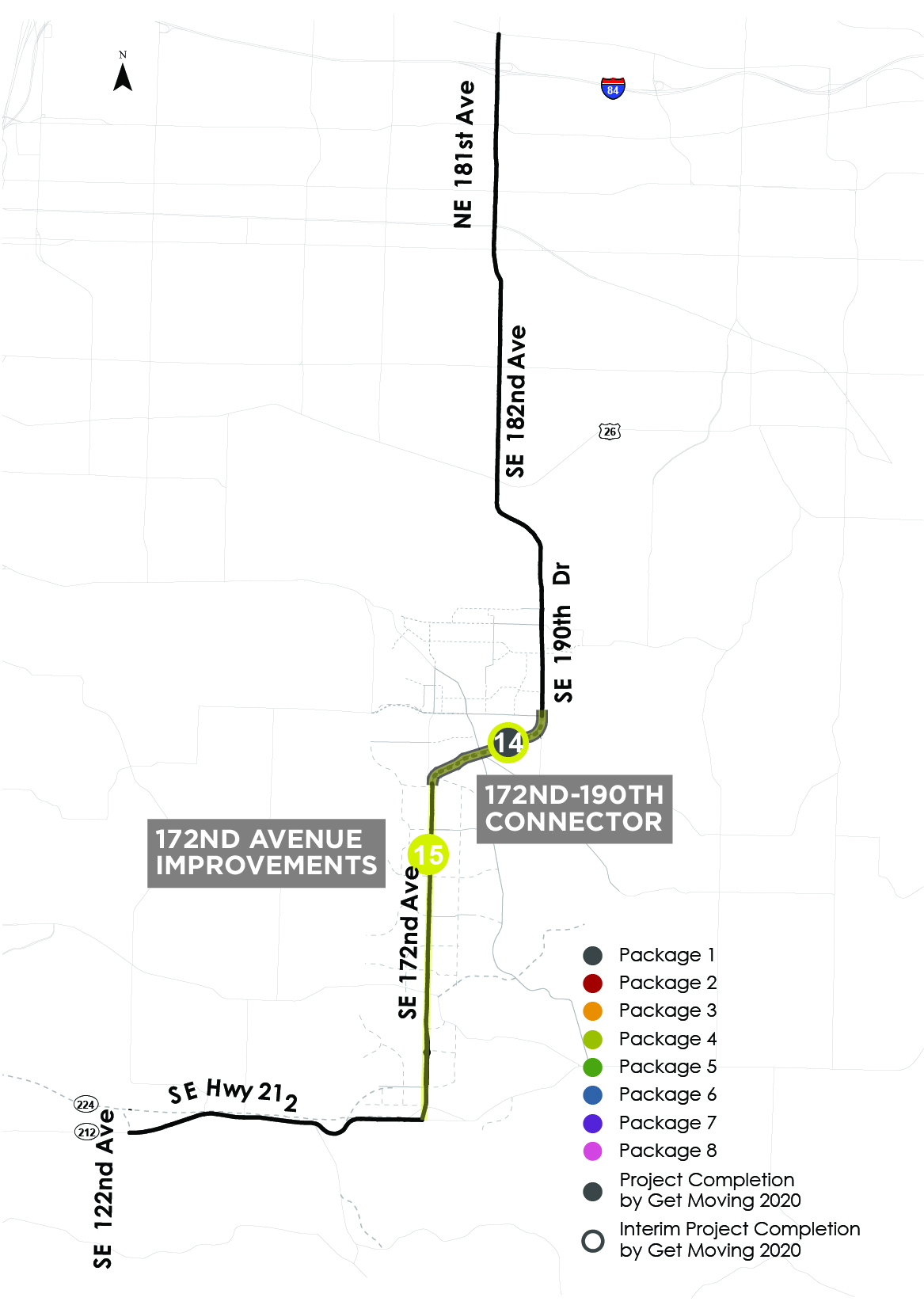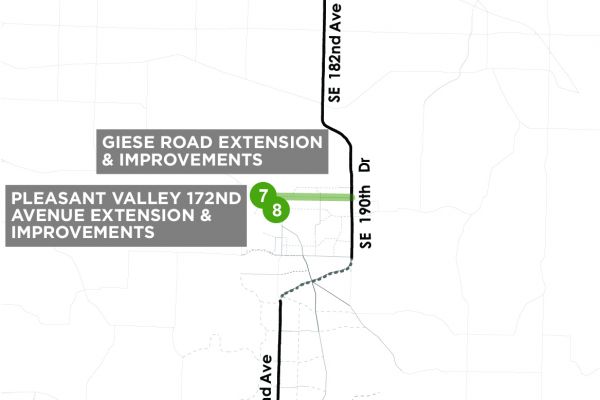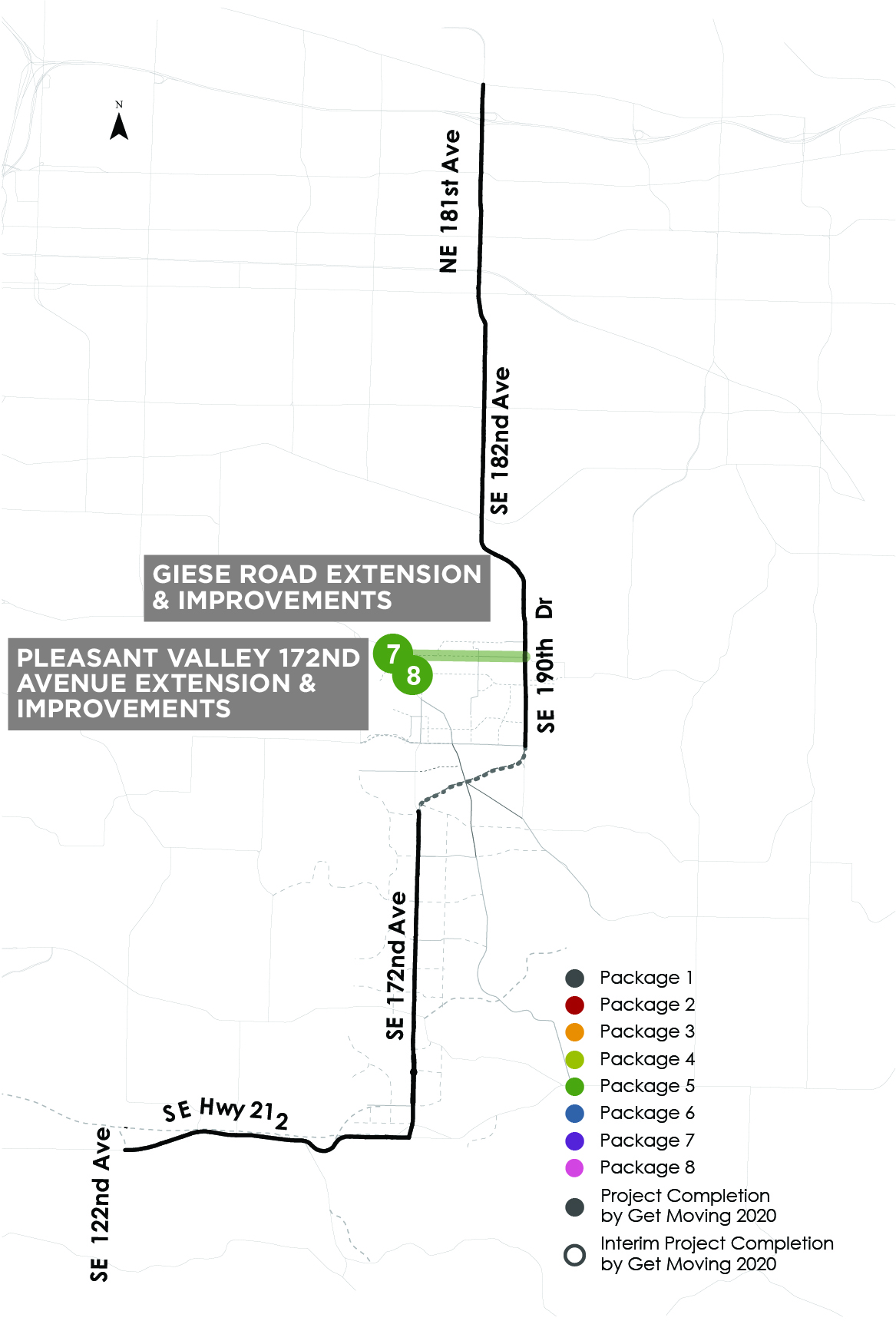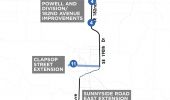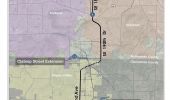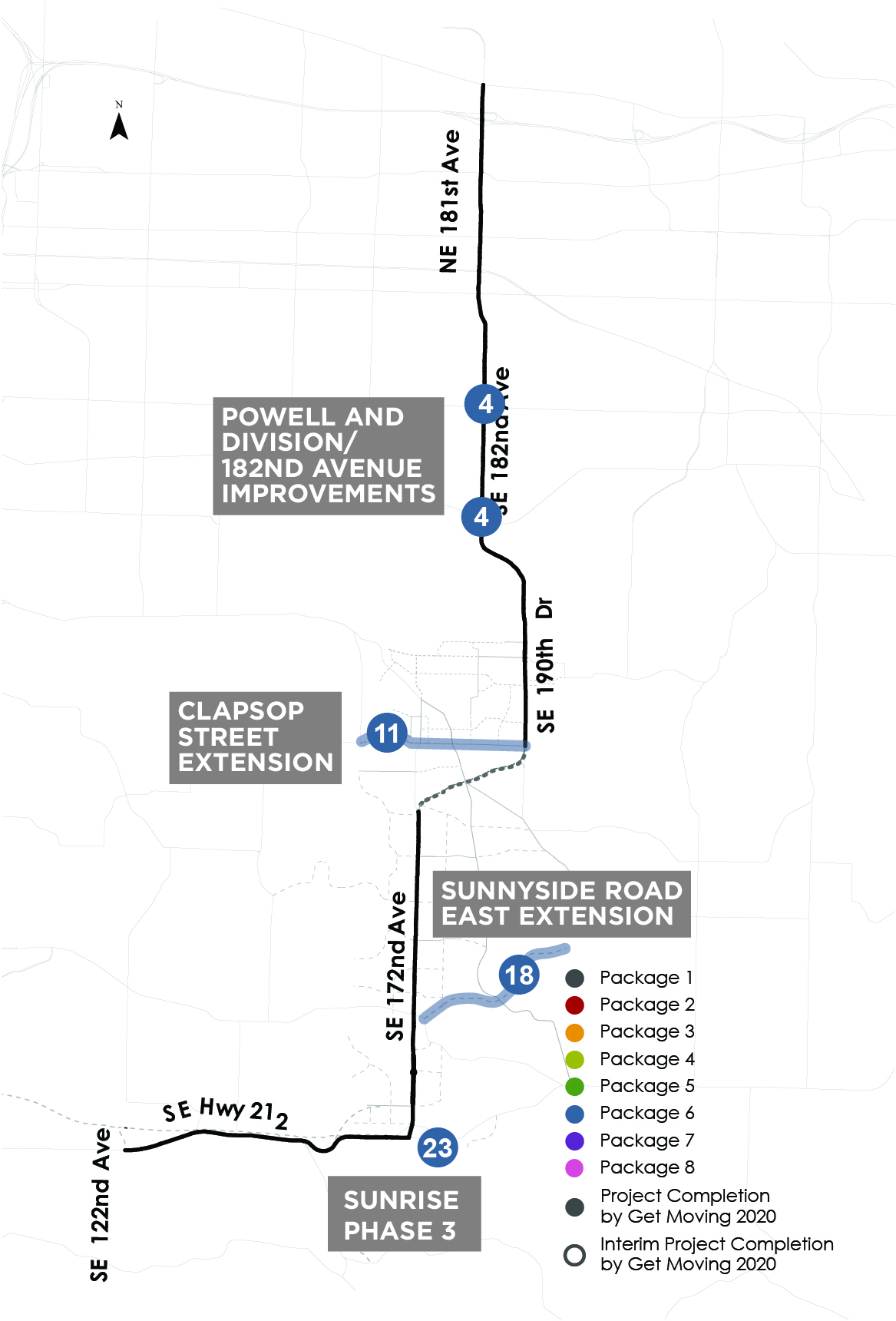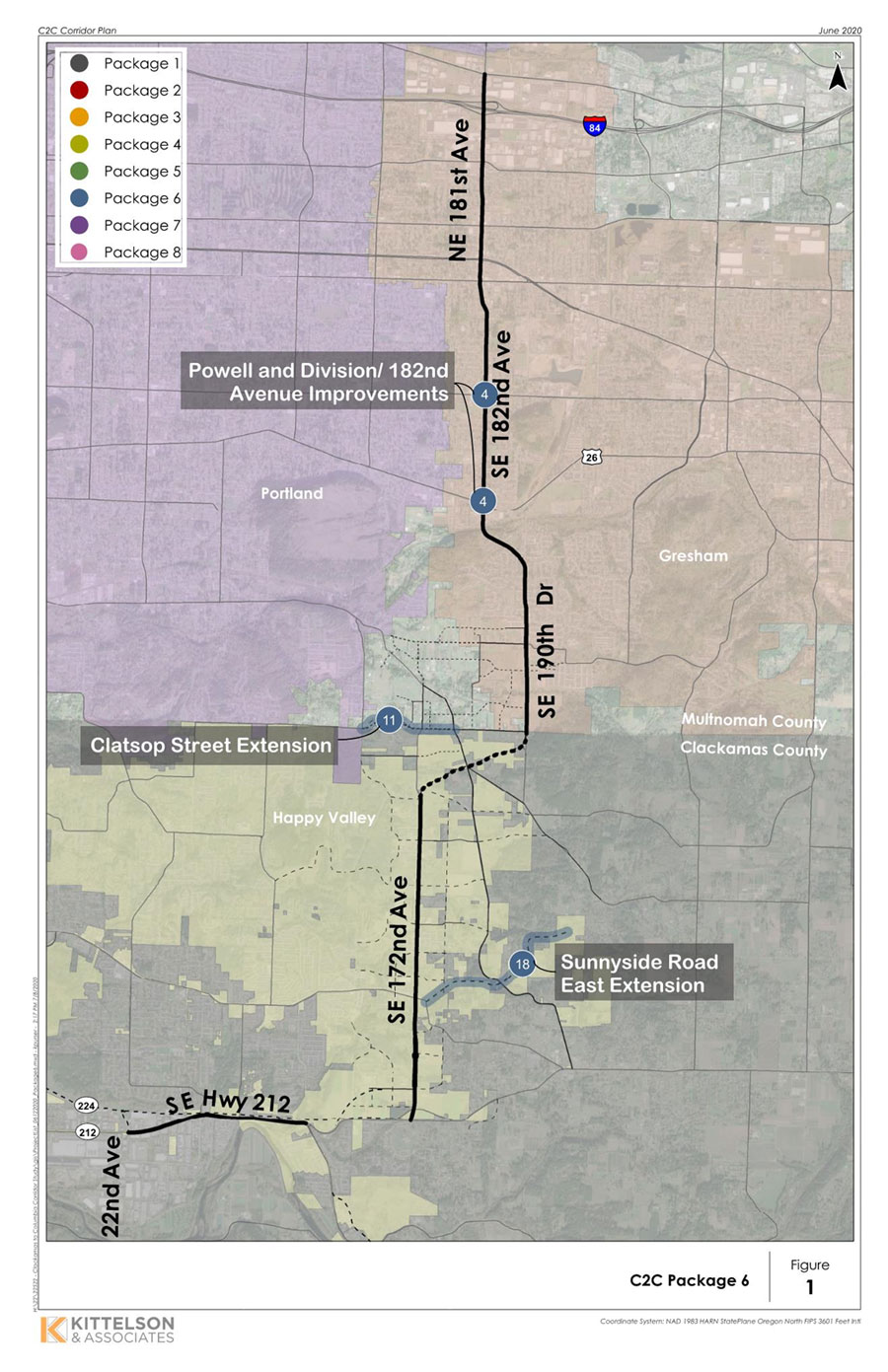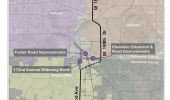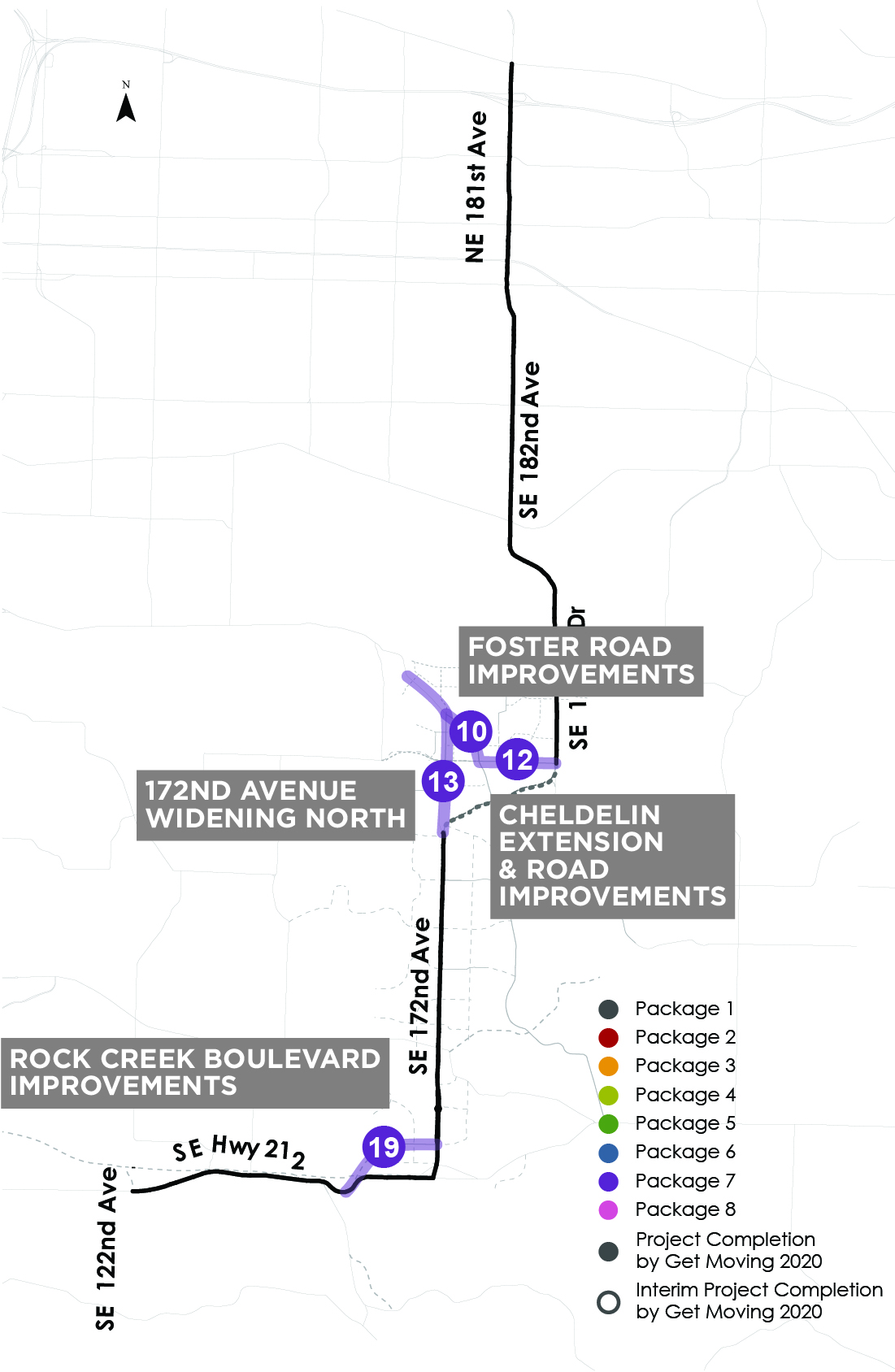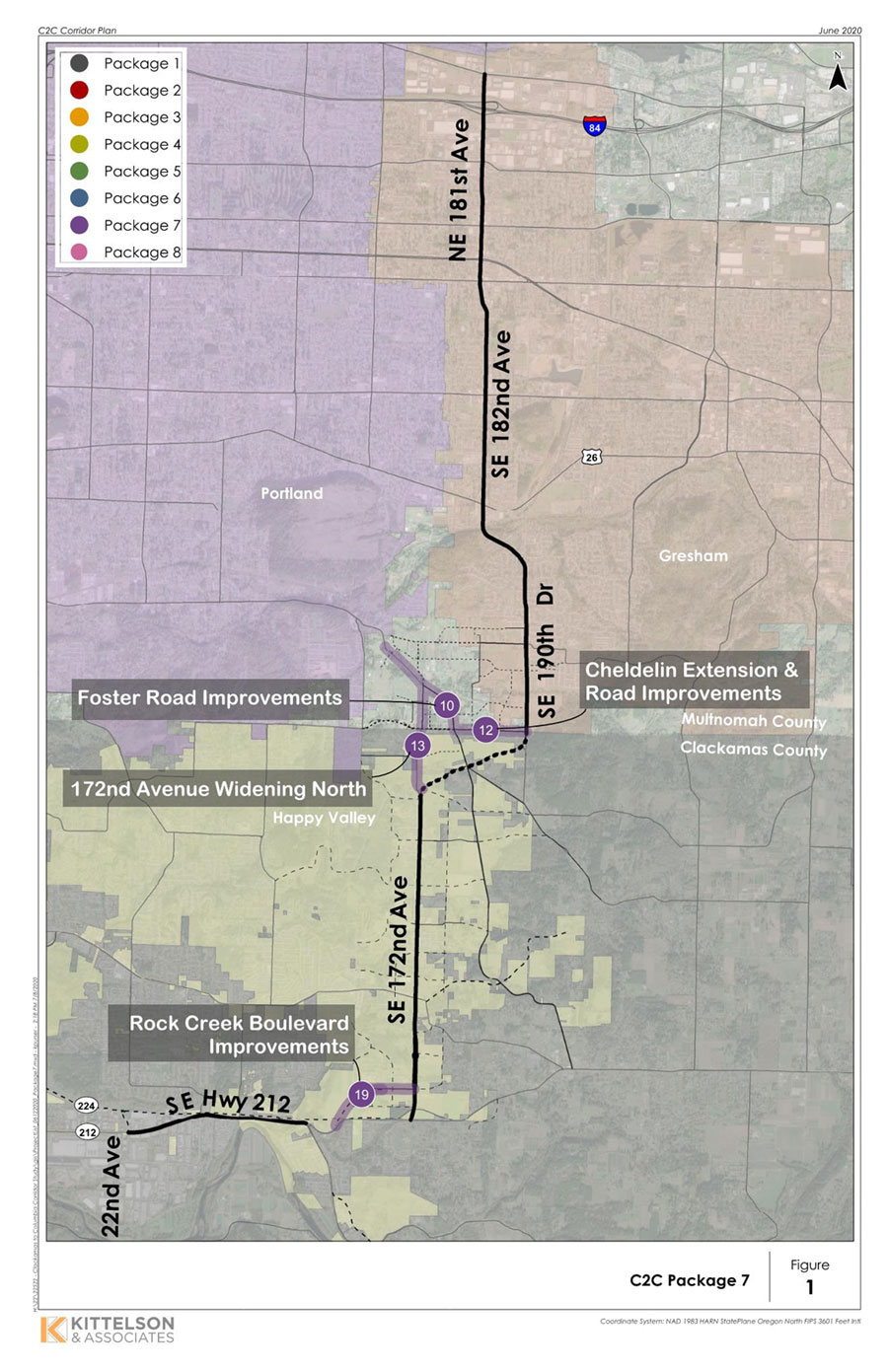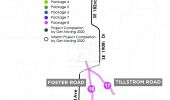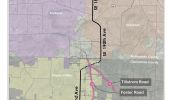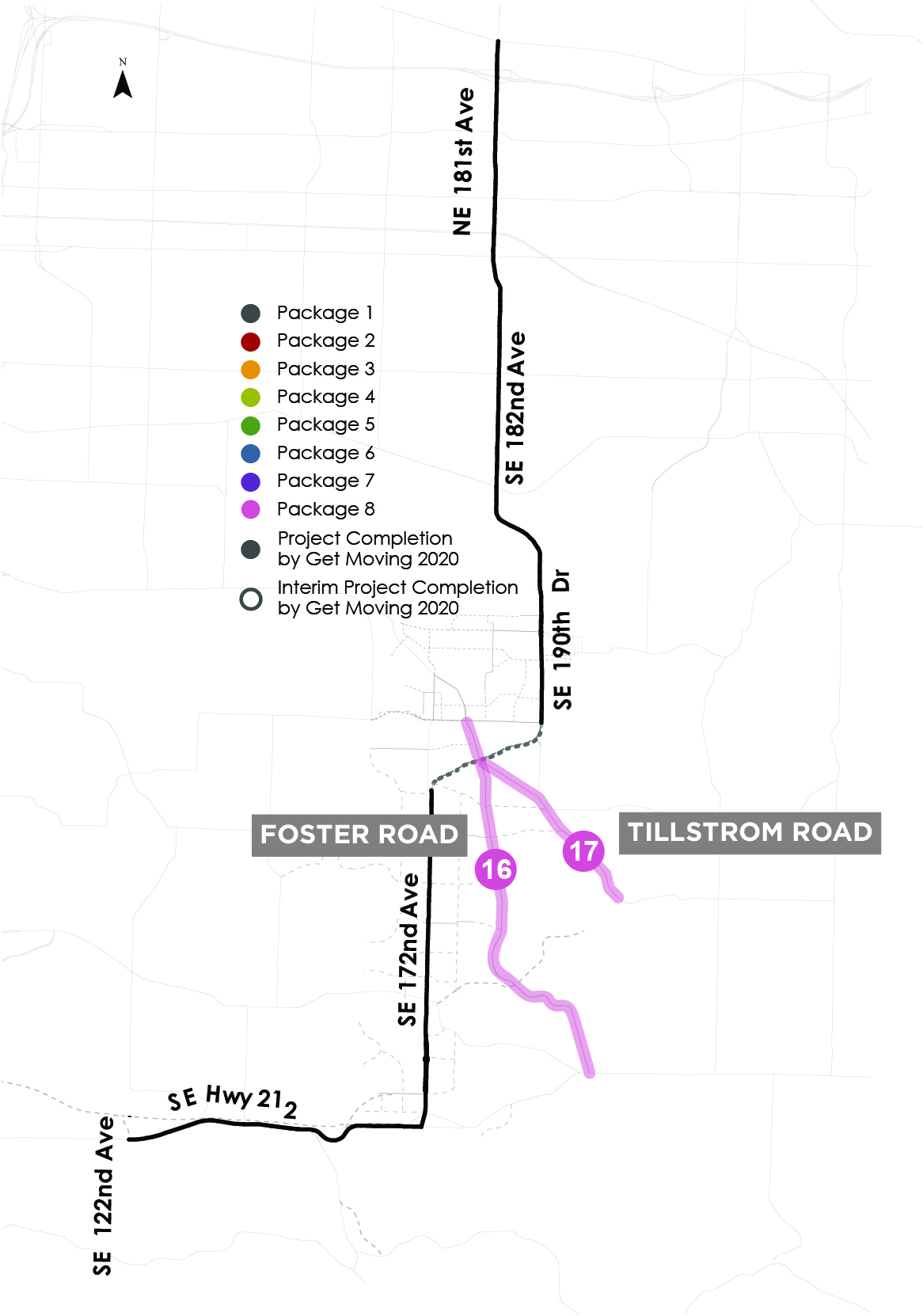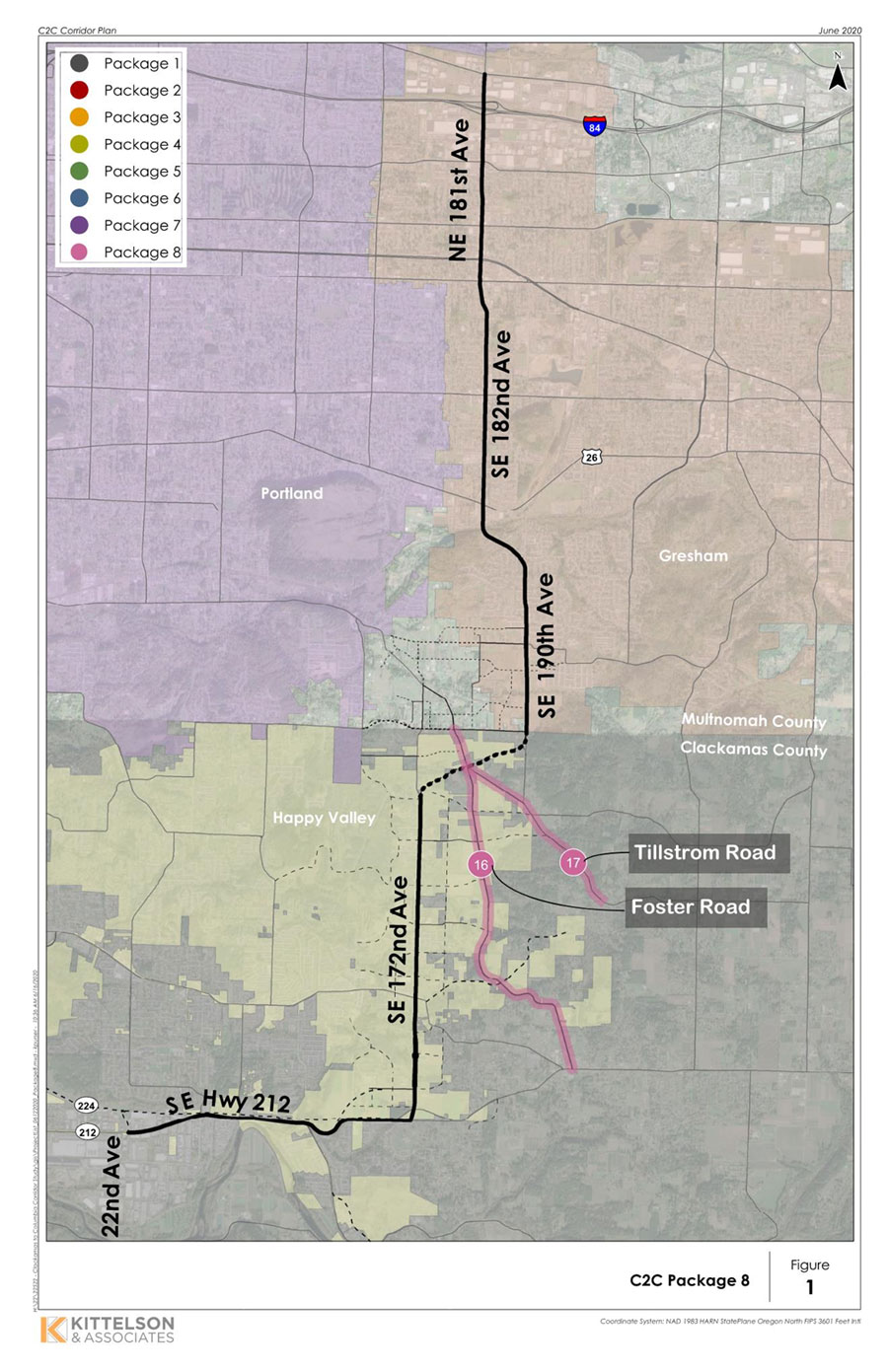Stations
Go directly to a station using the buttons below, or at the top of the screen to move through the stations in order.




= Page includes questions or opportunities for comment.
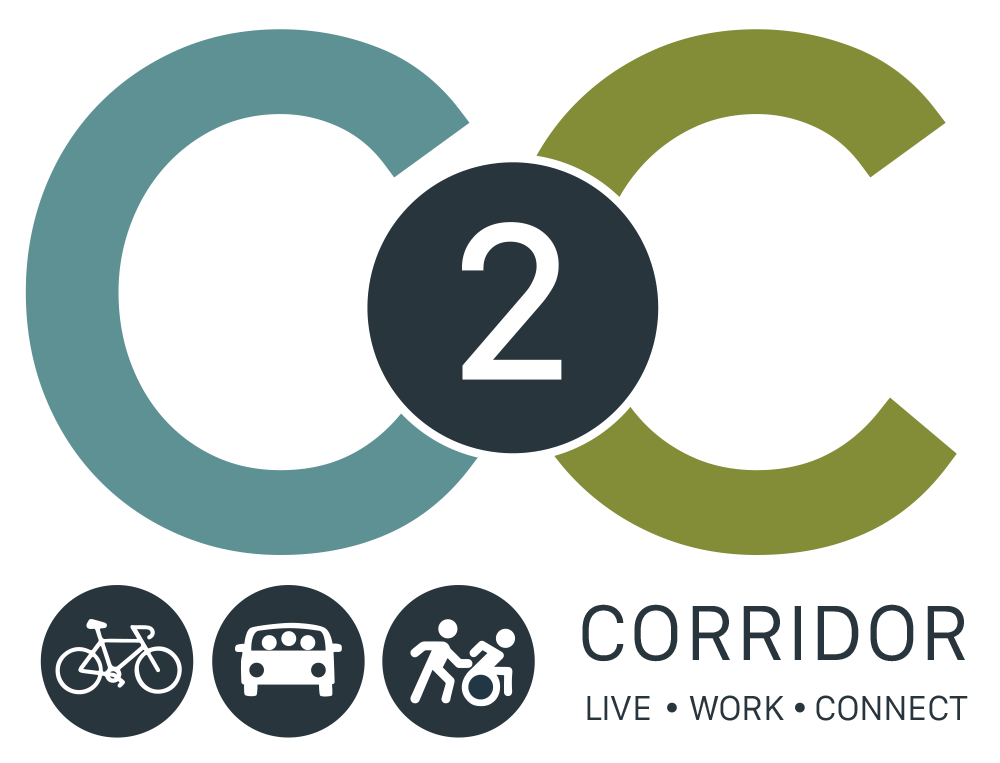
Project Information
- C2C Brochure (PDF, 1.2 MB)
- C2C Factsheet (PDF, 1.3 MB)
- Tech Memo 7.1 (PDF, 3.8 MB)
- Prospectus Sheets (PDF, 4 MB)
- Project Website
- Recording of the September 10 Public Online Listening Session
- PowerPoint slides from September 10 Public Online Listening (PDF, 3.9)
Project Area
Why is this project needed?
These improvements are integral to the region’s transportation system. Improving this route will yield immediate, noticeable benefits for people who drive, bike, walk and take transit through some of the fastest growing and most underserved communities in the Metro area. This project will:
- Connect underserved communities. This project will provide better north-south mobility and access for people who live on the outer east side. It will also serve a high number of people of color and lower income communities.
- Provide needed multimodal connections. The project will create a continuous route between the Clackamas and Columbia rivers and will include improvements for people who walk, ride bikes, and take transit.
- Serve growing communities. The C2C project will support other planning efforts in the area and will provide better access new jobs that are expected to come into the area over the next 20 years. It will also help serve the needs of Happy Valley - the fastest growing city in Oregon - and which is expected to grow 84% by 2040.
Learn more about why the project is needed. (PDF, 1.3 MB).
What will the project do?
The C2C project is a collection of previously planned and vetted projects that have been identified in city, county and other local plans.The C2C Corridor Plan will create a consistent, coordinated, multi-jurisdictional transportation plan that focuses on improvements for all modes along the 181st/182nd/190th/172nd corridor, connecting Interstate 84 in Multnomah County and Highway 212 in Clackamas County.
Specifically, this project will:
- Identify projects that should be included in Metro’s Regional Transportation Plan.
- Coordinate policy and project recommendations and conceptual street designs that should be included in each jurisdiction’s transportation system plans.
- Seek agreement from elected officials on how to prioritize projects.
- Identify the order of investments along the corridor.
- Target upcoming funding opportunities.
Who is involved?
The C2C Corridor Plan is a partnership project led by Gresham, with close involvement from Happy Valley, Portland, Multnomah County, Clackamas County, Metro, and ODOT.
What has happened?
The project has completed Phase 1 and is conducting public engagement as part of Phase 2. During Phase 2, the first Online Open House was held to collect community comments. The C2C Steering Committee (made up of elected representatives of Happy Valley, Gresham, Clackamas County, and Multnomah County), then met twice to discuss community comments and input to help create the final plan.
What is happening?
An online listening session will be held on Thursday, September 10 from 6-8 pm via Zoom. Click here on September 10 to attend.
Questions
Project Schedule
Process Phases
PHASE 1 (November 2019–March 2020)
Phase 1 pulled together previously planned and vetted projects from area transportation system plans and from the SE 172nd Avenue/ SE 190th Avenue Corridor Management Plan.
PHASE 1A (March–June 2020)
During Phase 1A, the project was paused to align C2C priorities with the "Get Moving 2020" regional investment measure. Public engagement also paused until Metro confirmed the contents of the investment measure, including which elements of the C2C project would receive funding.
PHASE 2 (early June–September)
The current phase will determine which projects to complete in what order, and will seek input from the project’s Steering Committee (elected officials from Gresham, Happy Valley, Clackamas County and Multnomah County) and the general public—via online events due to COVID-19. Its results will become the draft C2C Corridor Plan. This plan will be the roadmap for cities and counties to seek funding and complete projects.
ADOPTION
The final phase will run from October 2020 through March 2021. Counties and cities will hold public hearings to adopt the C2C Corridor Plan in their transportation system plans.
Packages Overview
Project Criteria
All of the identified projects are located directly on, intersect, or substantially impact or support the C2C Corridor. The investment packages are groups of projects that were selected based on:
- Whether they are included in the Metro Regional Investment Measure.
- How critical they are to establishing a multimodal C2C mainline.
- How likely they are to be funded and/or constructed by development frontage improvements.
- Evaluation scores.
Learn more about how the Investment Packages were created.
Creating Packages
Establishing a complete multimodal C2C mainline is the highest priority for the corridor. Thus, mainline projects proposed to be either partially or fully funded by Metro Regional Investment Measure were identified as Package #1.
Second, remaining projects on the C2C mainline were evaluated for their potential to be funded and/or constructed through new development. Projects that were less likely to be funded by development and more likely to need to be capital projects were identified as Package #2.
The highest score capital projects were collected into Package #3 since these projects will likely be needed to support future development along 172nd Avenue and the 172nd-190th Connector which are included in Package #4.
While some projects could be funded by new development, the implementation and success of other projects in the region depend on the mainline, and thus the C2C mainline projects with development projects would need to be constructed soon after. These projects were designated as Package #4.
The remaining projects were sorted by their likelihood to be driven by development and their respective evaluation scores. Those likely to be capital projects (not funded directly through new development) were sorted by score, with the highest score projects being included in Package #3, medium score projects in Package #5, and lower score projects in Package #6.
Projects that were not critical to the mainline and that were likely to be constructed through new development were placed in the last set of investment packages, with higher scored projects in Package #7 and lower scored projects in Package #8.
Give us feedback. Review the Investment Packages on the following pages and tell us if they make sense to you.
Package 1: Metro Regional Investment Measure Projects
Project Details
2 3 181st Avenue Improvements and 182nd Avenue Improvements
Adding complete sidewalks from I-84 to San Rafael, widening from I-84 to Sandy, add turn lanes for Halsey and 181st, Rockwood safety improvments (Stark to I-84), Glisan intersection improvements, Glisan to Yamhill “Complete Boulevard” design improvements, adding turn lanes to Stark and Sandy intersections. Filling sidewalk gaps from Eastwood Court to Division, seven pedestrian crossing additions or improvement along 182nd, and intersection striping and intersection lighting improvements at 182nd and Division.
Cost: $70,100,000 (Total)
Key Benefits: High score in safety and security, equitable transportation, multimodal mobility, livability and accessibility, economic development, fiscal stewardship.
5 190th/Highland Bridge Baseline Replacement
Four-lane bridge replacement with sidewallks and bike facilities as well as a seismic upgrade. Cost estimate differs from ranges identified in SE 190th Drive Refinement Memorandum.
Cost: $13,400,000
Key Benefits: High score in livability and accessibility, economic development, fiscal stewardship, and connectivity.
9 172nd/Foster Single-Lane Roundabout
Convert intersection to single-lane roundabout to improve safety and ease traffic congestion.
Cost: $6,500,000 - $8,300,000
Key Benefits: High score in safety and security, livability and accessibility, and fiscal stewardship
14 172nd-190th 2-Lane Connector
Provide new connector from 172nd Avenue to 190th Drive. Provide 2-lane vehicle cross-section, bicycle lanes, landscape strip, and sidewalks. Provide roundabouts at Cheldelin Road, Tillstrom Road, and 172nd Avenue. Ultimate 5-lane cross-section not included in Metro Regional Investment Measure.
Cost: $61,600,000
Key Benefits: High score in safety and security, equitable transportation, multimodal mobility, livability and accessibility, economic development, and connectivity.
20 Sunrise Phase 2A
Reconstruct roadway including sidewalks, bicycle facilities and crossings to improve access and safety. Grade-separate intersection with 142nd and realign 135th.
Cost: $204,200,000
Key Benefits: High score in safety and security, equitable transportation, multimodal mobility, livability and accessibility, economic development, fiscal stewardship.
21 Sunrise Phase 2B
Planning and design for Sunrise Phase 2B.
Cost: $34,000,000
Key Benefits: High score in safety and security, equitable transportation, multimodal mobility, livability and accessibility, economic development, and fiscal stewardship.
Questions
Package 2: C2C Mainline Capital Projects
Project Details
1 Enhanced Transit on C2C
Provide enhanced transit (arrivals every 15 minutes or better during most of the day) along the C2C Corridor. Shown here in white.
Cost: Funded through Expanded Service District
Key Benefits: High score in equitable transportation, livability and accessibility, economic development, fiscal stewardship, and connectivity.
5 190th/Highland Complete Bridge Replacement
Four-lane bridge replacement with sidewallks and bike facilities as well as a seismic upgrade.
Cost: Up to $2,998,000
Key Benefits: High score in livability and accessibility, economic development, fiscal stewardship, and connectivity.
Cost reflects difference between Metro Regional Investment Measure estimate and SE 190th Drive Refinement Memorandum Estimate.
6 SE 190th Drive Improvements
Widen 190th Drive from Powell Boulevard to Cheldelin Road. Provide 5-lane vehicle cross-section, bicycle lanes, landscape strip, and sidewalks. Signalize or provide roundabouts for 190th at Giese Road, Butler Road, Richey Road, and Cheldelin Road.
Cost: $32,019,000 not including right-of-way
Key Benefits: High score in safety and security, multimodal mobility, livability and accessibility, economic development, fiscal stewardship, and connectivity.
Questions
Project Details
21 Sunrise Phase 2B Construction
Constructs Sunrise Gateway facility from 142nd Avenue to 172nd Avenue. Provides bridge structure over 152nd Avenue and 162nd Avenue. Includes realignment of 162nd Avenue, new frontage road on southeast quadrant of Sunrise Gateway/162nd Avenue, and signalied at-grade intersection with SE 172nd Avenue. Constructs Sunrise Gateway facility from 122nd Avenue to 142nd Avenue. Provides 122nd Avenue intersection for forward-compatibility with complete access-control. Constructs a grade-separated bicycle and pedestrian crossing at 135th Avenue.
Cost: $292,879,000
Key Benefits: High score in safety and security, equitable transportation, multimodal mobility, livability and accessibility, economic development, and fiscal stewardship.
22 Sunrise Phase 2C
Constructs roundabout at Rock Creek Junction
Cost: $19,998,000
Questions
Package 4: C2C Mainline Development Projects
Project Details
14 172nd-190th 5-Lane Connector
Widen to 5-lane vehicle cross-section, bicycle lanes, landscape strip, and sidewalks. Provide roundabouts at Cheldelin Road, Tillstrom Road, and 172nd Avenue.
Cost: $10,288,000 cost differential between 5-lane and 2-lane cost estimates. Actual value may differ, depending on amount of 2-lane facility that is forward-compatible
Key Benefits: High score in safety and security, equitable transportation, multimodal mobility, livability and accessibility, economic development, and connectivity.
15 172nd Avenue Improvements
Widen 172nd Avenue from Connector to Sunnyside Road. Provide 5-lane vehicle cross-section, bicycle lanes, landscape strip, and sidewalks. Provide roundabouts at Hemrich Road and Scouter Mountain Road and signalize Troge Road and Vogel Road.
Cost: $43,000,000
Key Benefits: High score in safety and security, multimodal mobility, livability and accessibility, economic development, fiscal stewardship, and connectivity.
Questions
Package 5: Medium Score Capital Projects
Project Details
7 Giese Road Extension and Improvements
Extend Giese Road from Foster Road to 182nd Avenue. Widen Giese Road from 182nd Avenue to 190th Drive. Provide 3-lane vehicle cross-section, bicycle lanes, landscape strip, and sidewalks.
Cost: $22,714,000 + 2 Stream Crossings and Right-of-Way
Key Benefits: High score in livability and accessibility, economic development
8 Pleasant Valley 172nd Avenue Extension & Improvements
Extend 172nd Avenue from Foster Road to Giese Road. Widen 172nd Avenue from Foster Road to Cheldelin Road. Provide 3-lane vehicle cross-section, bicycle lanes, landscape strip, and sidewalks.
Cost: $13,020,000 + 1 Stream Crossings and Right-of-Way
Key Benefits: High score in livability and accessibility, economic development
Questions
Project Details
4 Powell and Division/ 182nd Avenue Improvements
Add a second westbound left turn lane at Division, add northbound and southbound double left- turn lanes and through lanes at Powell, and add transit/enhanced transit corridor supportive projects.
Cost: $2,093,000
Key Benefits: High score in economic development and fiscal stewardship
11 Clatsop Street Extension
Extend Clatsop Street from 162nd Avenue to 172nd Avenue. Provide 3-lane vehicle cross-section, bicycle lanes, landscape strip, and sidewalks.
Cost: $4,302,000
Key Benefits: High score in livability and accessibility, economic development
18 SE Sunnyside Rd East Extension
Construct new 5-lane road with continuous left turn lane, sidewalks, bike lanes and traffic signals.
Cost: $13,159,000
Key Benefits: High score in livability and accessibility
23 Sunrise Phase 3
Provides improvements east of 172nd Avenue.
Cost: TBD
Key Benefits: High score in safety and security, equitable transportation, multimodal mobility, livability and accessibility, economic development, and fiscal stewardship.
Questions
Project Details
10 Foster Road Improvements
Provide improvements to create town center consistent with Happy Valley Pleasant Valley -North Carver Land Use Transportation Plan. Widen Foster Road from 172nd Avenue to Cheldelin Road. Provide 3-lane vehicle cross-section, bicycle lanes, landscaped median, landscape strip, and sidewalks.
Cost: $7,593,000 + 2 stream crossings *Not Including Right-of-Way*
Key Benefits: High score in safety and security, livability and accessibility, and economic development
12 Cheldelin Extension & Road Improvements
Extend Cheldelin Road from 172nd Avenue to Foster Road. Widen Cheldelin Road from Foster Road to 190th Drive. Provide 3-lane vehicle cross-section, bicycle lanes, landscape strip, and sidewalks.
Cost: $12,000,000
Key Benefits: High score in safety and security, livability and accessibility, and economic development
13 172nd Avenue Widening North
Widen 172nd Avenue to 3-lane vehicle cross-section, bicycle lanes, landscape strip, and sidewalks between 172nd-190th Connector to Cheldelin Road.
Cost: $10,000,000
Key Benefits: High score in livability and accessibility, economic development
19 Rock Creek Boulevard Improvements
Construct new 5-lane vehicle cross-section from Sunrise Corridor Rock Creek interchange to 162nd Avenue; Widen existing alignment of Rock Creek Boulevard to five lanes from 162nd to 177th Avenue. Facility improvements include continuous left turn lane, sidewalks, bike lanes and traffic signals. In addition, will improve safety on a High Injury Corridor.
Cost: $13,539,000
Key Benefits: High score in economic development and connectivity.
Questions
Project Details
16 Foster Road
Provide 3-lane vehicle cross-section, bicycle lanes, landscape strip, and sidewalks from Cheldelin Road to Sunnyside Road.
Cost: $28,000,000
Key Benefits: High score in safety and security
17 Tillstrom Road
Widen Tillstrom Road and realign at Foster Road at a stop-controlled intersection. Provide 3-lane vehicle cross-section, bicycle lanes, landscape strip, and sidewalks.
Cost: $15,054,000
Key Benefits: High score in safety and security
Questions
| Package | Your Rating |
|---|---|
Package 1: Metro Regional Investment Measure Projects | |
Package 2: C2C Mainline Capital Projects | |
Package 3: High Score Capital Projects | |
Package 4: C2C Mainline Development Projects | |
Package 5: Medium Score Capital Projects | |
Package 6: Low Score Capital Projects | |
Package 7: High Score Development Projects | |
Package 8: Low Score Development Projects |
= High priority
= Medium priority
= Low priority
= Don't know
Questions
- Package 1: Metro Regional Investment Measure Projects Not ranked.
- Package 2: C2C Mainline Capital Projects Not ranked.
- Package 3: High Score Capital Projects Not ranked.
- Package 4: C2C Mainline Development Projects Not ranked.
- Package 5: Medium Score Capital Projects Not ranked.
- Package 6: Low Score Capital Projects Not ranked.
- Package 7: High Score Development Projects Not ranked.
- Package 8: Low Score Development Projects Not ranked.
Project Schedule
Stay Involved
- Visit the project website at greshamoregon.gov/Clackamas-to-Columbia-Corridor/
- Sign up for email updates below.
- Contact: Jay Higgins, Associate Transportation Planner, City of Gresham
503-618-2215, Jay.Higgins@GreshamOregon.gov - An online listening session will be held on Thursday, September 10 from 6-8 pm via Zoom. Click here on September 10 to attend.
Final Questions
Contact Information (Optional)
Provide this information if you wish to receive email notifications about this project.
Demographic Questions (Optional)
Your answers to these questions help us know if we are reaching a representative sample of stakeholders. They are completely optional.
For ADA Title II or Civil Rights Title VI accommodations, translation/interpretation services or for additional information call 503-731-4128, TTY (800) 735-2900 or use the statewide Oregon Relay Service: 7-1-1.
¿Habla ustéd español? Podemos proveer la información en esta publicación en español. Para recibir la información en español, por favor llamé al (503) 731-4128.

